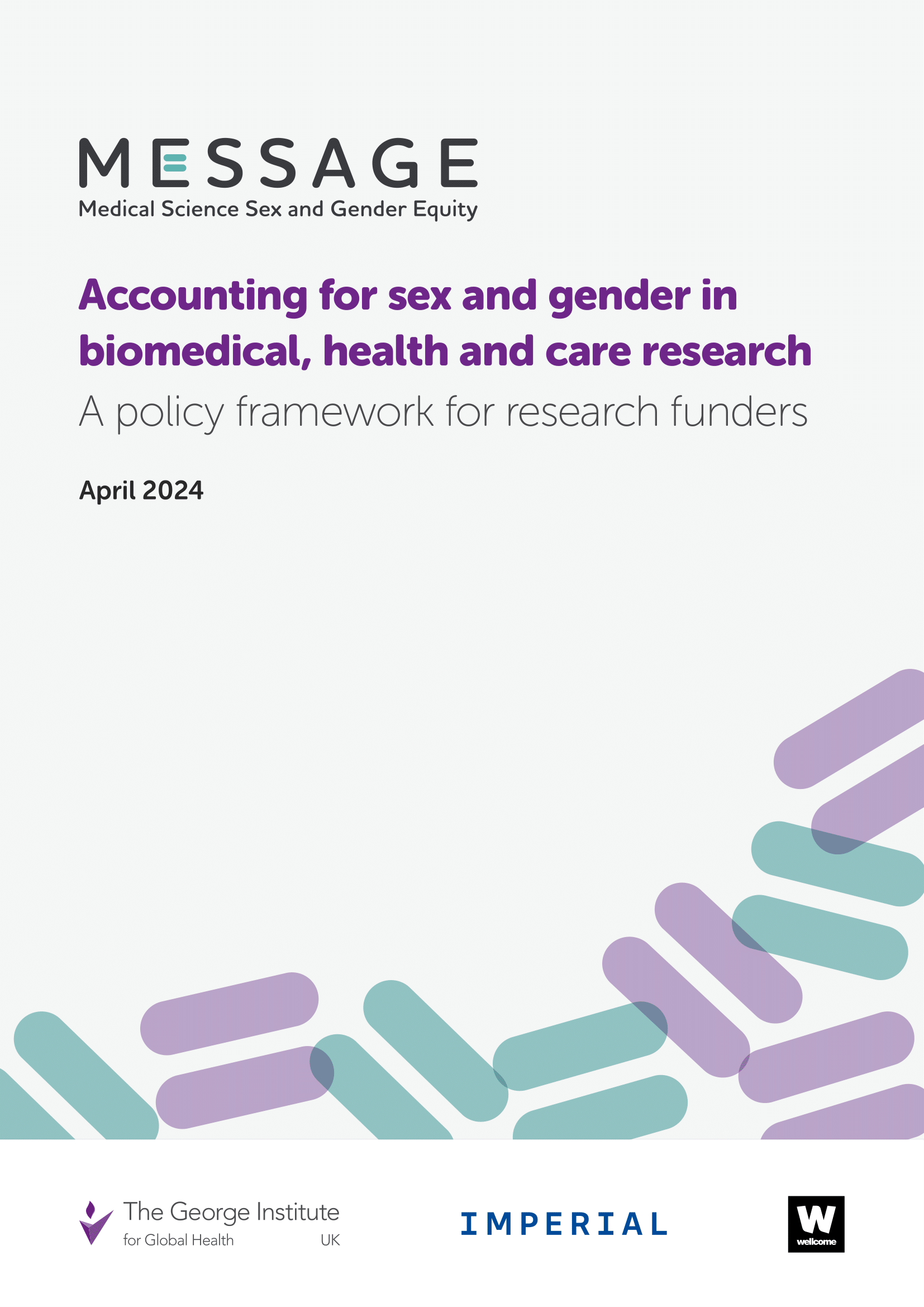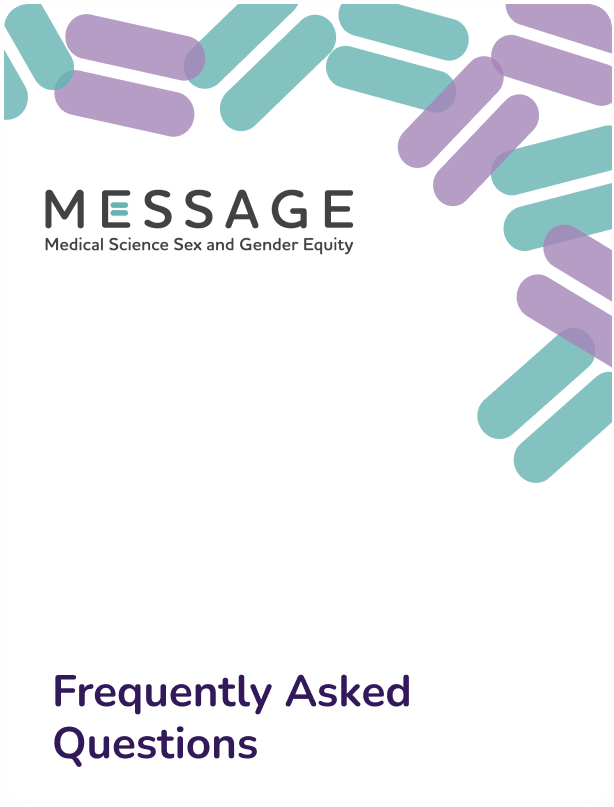Policy framework
Funder policies are essential for improving consideration of sex and gender in research. The MESSAGE project has led co-design of a best practice policy framework for UK research funders.
The framework sets out new expectations that researchers will consider sex and gender at every stage of the research cycle, as well as definitions of terms and answers to key concerns.

We launched the MESSAGE policy framework with a webinar focused on introducing new recommendations for scientific practice and explaining how these will enhance the quality of UK science at each stage of the research pipeline.
Alongside the MESSAGE team, speakers included Richard Horton (Editor-in-Chief, The Lancet), Lucy Chappell (CEO, NIHR), Diego Baptista (Head of Research and Funding Equity, Wellcome), Susan Cole (Board Member, Global Network of People Living with HIV) and Cat Bohannon (Author, Eve: How the Female Body Drove 200 Million Years of Human Evolution).
You can watch the full webinar recording below.
FAQs about the policy framework
Who is the policy framework for?
This policy framework was designed to be adopted by research funders. However, other research organisations including academic publishers and regulators were involved in its design so that key principles can be mirrored across the sector.
We encourage researchers to familiarise themselves with the framework, which sets out key considerations for sex and gender integration in study design. Familiarity with the framework will support researchers to meet funder expectations regarding sex and gender.
What is the aim of the policy framework?
The policy framework provides a template for research funders to adopt new sex and gender policies, application questions and/or guidance for researchers. Under new policies, researchers will be expected to design studies in a way that accounts for sex and gender across data collection, analysis and reporting of findings. The policy framework is applicable to basic, clinical and population health research.
How should this tool be used?
The MESSAGE policy framework has been co-designed by representatives across the UK research sector and represents the sector’s expectation of a gold standard policy. Research funders are encouraged to use the framework’s wording and layout as the template for their organisation’s sex and gender policy. However, the framework is not proscriptive and research funders may adapt the framework as desired to meet their organisational needs.
The framework sets out co-designed definitions for sex and gender in the context of biomedical, health and care research, as well as information regarding statistical design. We recommend that funders, academic publishers, regulators and other research organisations draw on this rich content when establishing policy expectations, application questions and guidance for researchers.
How was this policy developed?
The MESSAGE project hosted four Policy Labs over the course of 2023-24, which brought together stakeholders from across the UK research sector to co-design this policy framework. Stakeholders included research funders, regulators, academic publishers, patients and people with lived experience of different sexes and genders, researchers, clinicians and government officials. Over 50 stakeholders were involved in the process and the full list of can be found here. The content of the policy framework draws on the perspectives of Policy Lab participants, international best practice and consultation with experts.
Frequently Asked Questions
More information about what a sex and gender policy means can be found in this FAQ sheet.

Toolkit for research funders
Implementation of sex and gender policies must be accompanied by changes to the granting system to ensure researchers adhere to funder expectations.
This MESSAGE toolkit sets out 6 steps of action needed to adapt the granting system to ensure sex and gender are accounted for in funding applications.
